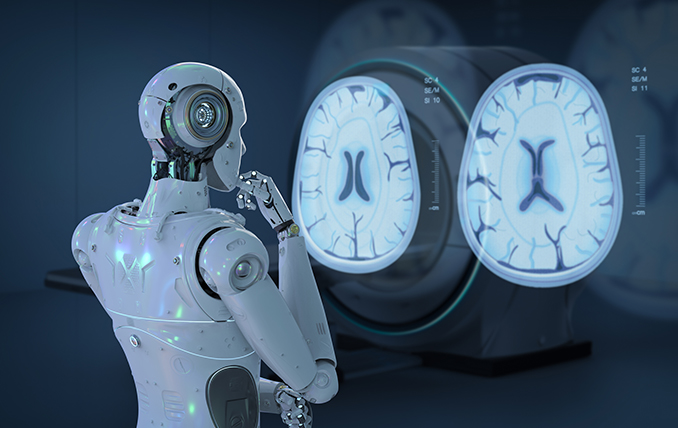
AI Revolutionizes Medical Diagnostics with Predictive AnalyticsAI Revolutionizes Medical Diagnostics with Predictive Analytics The advent of artificial intelligence (AI) is transforming the field of medical diagnostics, revolutionizing the way healthcare professionals identify, diagnose, and treat diseases. Predictive analytics, a subset of AI, plays a pivotal role in this transformation. Predictive analytics leverages advanced algorithms and machine learning to analyze vast amounts of data to identify patterns and predict future outcomes. In the context of medical diagnostics, predictive analytics can provide valuable insights into patient health and disease risk. Early Disease Detection: AI algorithms can analyze patient data, such as electronic health records, lab results, and imaging scans, to identify subtle patterns that may indicate early signs of disease. By detecting diseases at an early stage, healthcare providers can intervene promptly, increasing the chances of successful treatment and improving patient outcomes. Personalized Risk Assessment: Predictive analytics can generate personalized risk profiles for patients based on their individual characteristics, such as genetics, lifestyle, and medical history. This information helps clinicians tailor screening and preventive measures, identifying individuals who are at high risk for developing specific diseases. Improved Diagnosis Accuracy: AI algorithms can assist healthcare providers in making more accurate diagnoses by analyzing complex medical data. By incorporating vast databases of medical knowledge and insights, AI systems can provide second opinions, reducing the likelihood of misdiagnosis and improving patient safety. Cost Reduction and Improved Efficiency: Predictive analytics can reduce healthcare costs by identifying patients at risk of developing expensive chronic diseases. By enabling early intervention and preventive care, AI helps prevent unnecessary hospitalizations and costly treatments. Example: In a recent study, researchers utilized predictive analytics to analyze data from electronic health records to identify patients at risk of developing type 2 diabetes. The algorithm successfully predicted diabetes risk with 70% accuracy, allowing healthcare providers to target preventive interventions to the most vulnerable individuals. Conclusion: AI-driven predictive analytics is revolutionizing medical diagnostics by enabling early disease detection, personalized risk assessment, improved diagnosis accuracy, and cost reduction. As AI technology continues to evolve, we can expect even more breakthroughs in medical diagnostics, ultimately leading to improved patient outcomes and a more efficient healthcare system.
Posted inNews